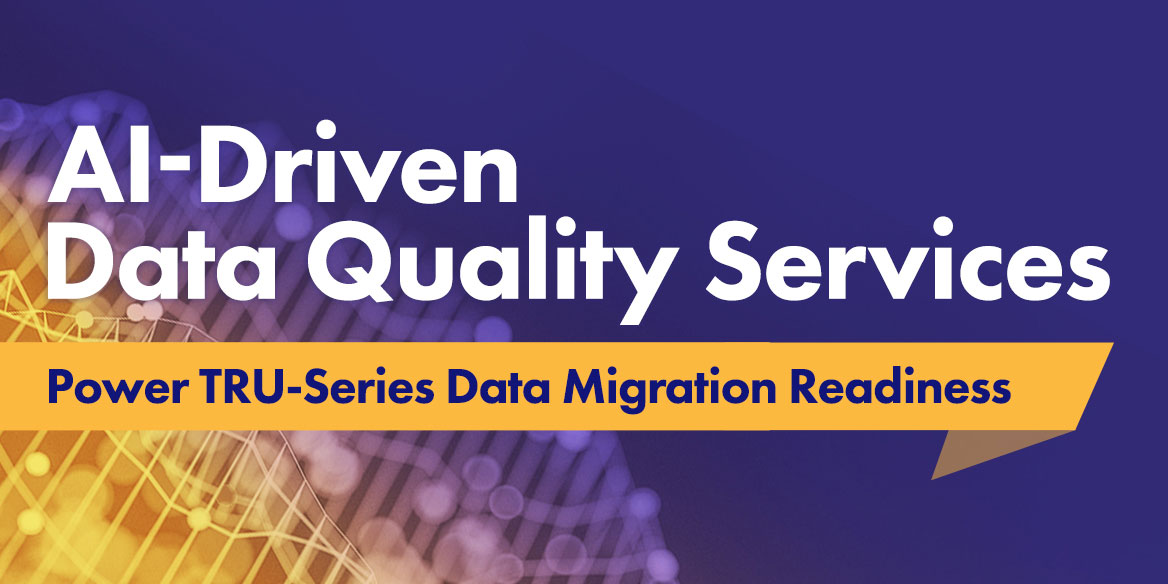Blog
AI-Driven Data Quality Services
Enhanced Data Migration Capabilities

Imagine if you had a crystal ball to see the future of your migration before even one record is moved? Better yet, what if that crystal ball could help you see into all the legacy system data that can cause your migration to fail?
Well, Valiance now offers crystal balls in the form of Artificial Intelligence and Machine Learning capabilities with its recently announced Data Quality Services for Life Sciences (DQSLS).
In life sciences like all industries, data quality remains a critical concern. When migrating platforms, manual data entry, incomplete data, siloed systems, duplicates, unstructured sources and hidden data are causing business leaders to seek smarter tools to make migrations faster and more accurate with increased levels of security.
Valiance’s DQSLS leverages artificial intelligence and machine learning models to examine data quality of the source system and establish how well source data fits the target system constraints. DQSLS highlights quality issues that could jeopardize your migration, and is an important early step in assessing legacy system data suitability and migration readiness before moving to a new platform.

Valiance and NNIT introduce AI-driven
Data Quality Services to Power Migration Readiness
September 15th, 2021 Webinar
Source Profiling and Quality Assessment
Data profiling shows the as-is state of data quality in the source system, a major step towards the creation of a more structured, consistent and reliable set of data in the target environment. It provides the basis for assessing which data to focus on for improvement, setting the stage for the data enhancement phase in your migration project.
AI/ML Capabilities for Document Attribute Search and Analysis
New AI/ML features of Tru-Series address the common challenge of limited awareness of unstructured document content, which makes it difficult to identify relevant information, as well as extract that data for migration. Previous approaches required a substantial amount of manual effort, consolidating metadata, as well as the data itself.

Learn more about how Valiance’s AI advancements are helping life sciences assess legacy system data suitability and migration readiness.


